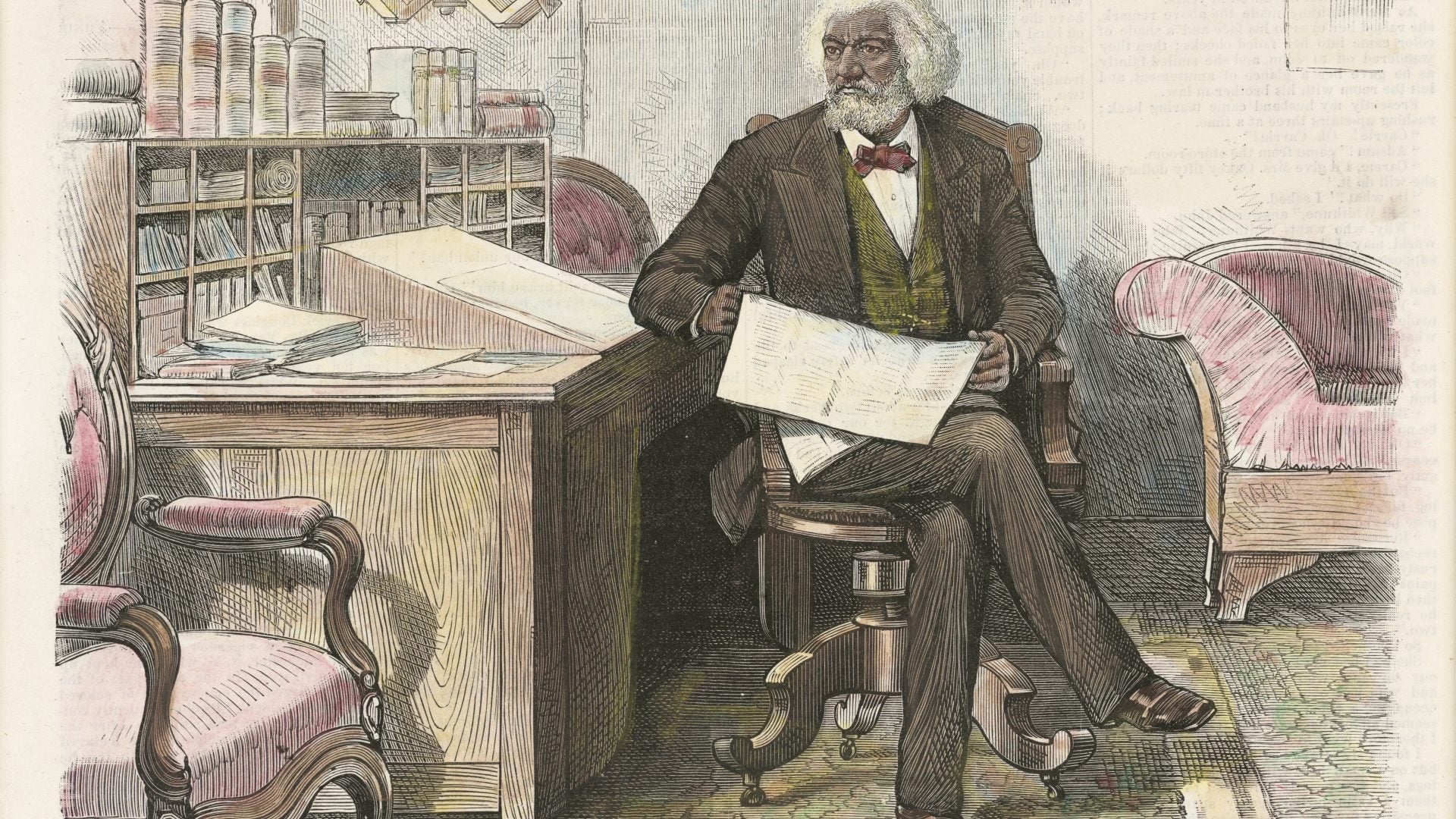
This Valentine’s Day, ESSENCE wants to make sure that you’re also celebrating the birthday of abolitionist icon Frederick Douglass.
“Like many of those born into slavery, Frederick Douglass had no idea of the date of his birth.” But during his lifetime Douglass decided that he would celebrate on February 14. But what made Douglass choose Valentine’s Day?
In 1877, Frederick Douglass spoke with Captain Thomas Auld, a former master from when he was enslaved. “I told him I had always been curious to know how old I was and that it had been a serious trouble to me, to not know when was my birthday. He said he could not tell me that, but he thought I was born in February 1818.”
Another clue behind choosing the day of love comes from one of Douglass’ own books. In My Bondage and My Freedom, he recounted how his mom presented him a cake the last meeting they had together. “The ‘sweet cake’ my mother gave me was in the shape of a heart, with a rich, dark ring glazed upon the edge of it. I was victorious, and well off for the moment; prouder, on my mother’s knee, than a king upon his throne.”
In addition, his mother reportedly used to call Douglass “her ‘Little Valentine.’”
As the Washington Post reported, “[a]fter he got his freedom he celebrated St. Valentine’s Day as his birthday, since he felt he had a good a right to have a birthday as other people, and he liked the traditions surrounding that date.”
In the years after Douglass died in 1895, schools for Black children in Washington, D.C. “started marking the observed birthday as ‘Douglass Day.’” This was in large part due to the efforts of Black activist Mary Church Terrell.
In addition, the city also designated this day as “a holiday for its segregated schools.” By 1901, Chicago and other cities were also observing Douglass Day. Prominent Black people at the turn of the century wanted to ensure that this would be “a day to reflect on his life and achievements would garner ‘respect of the race,’ ‘stir young minds of the Negro children,’ and benefit future generations.”
If you’re wondering why you might not have heard of Douglass Day before, it’s because “commemorations eventually disappeared with the rise of Black History Month.”
But in 2017, “[a] group at the University of Delaware helped revive Douglass Day.” This year for the first time ever, “[t]he Library of Congress’ By the People initiative, in collaboration with the Center for Black Digital Research at Pennsylvania State University” held a “transcribe-athon.” The goal: for all 8,731 pages of general correspondence from Douglass to be transcribed in one day.
Librarian of Congress Carla Hayden said, “Douglass Day honors the life and legacy of a great African American abolitionist, writer and speaker, and the Library of Congress is thrilled to join Penn State in inviting all Americans to transcribe his papers on this special day of celebration and remembrance.”